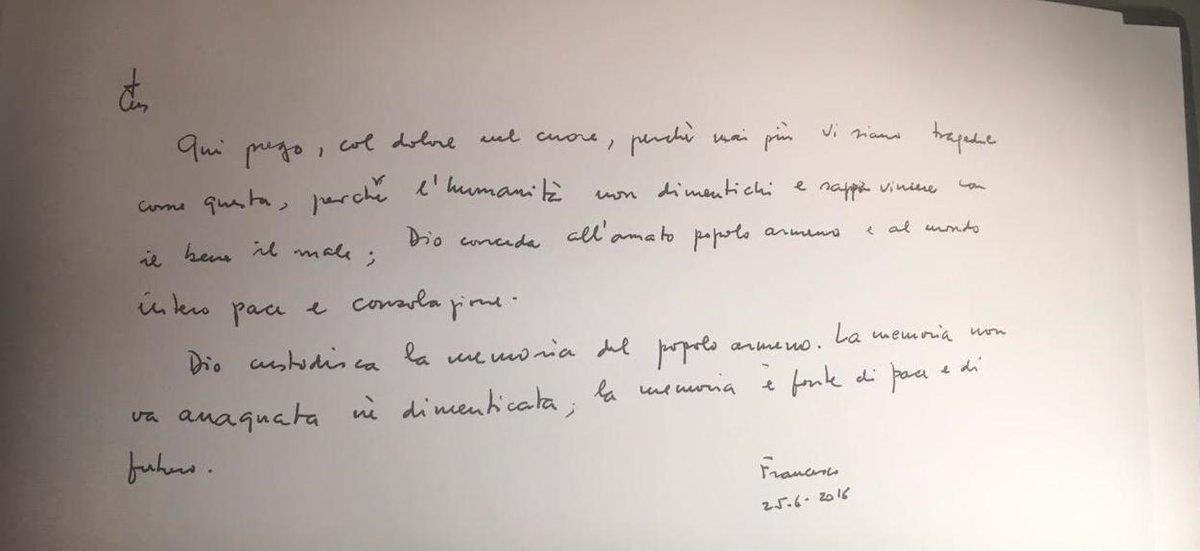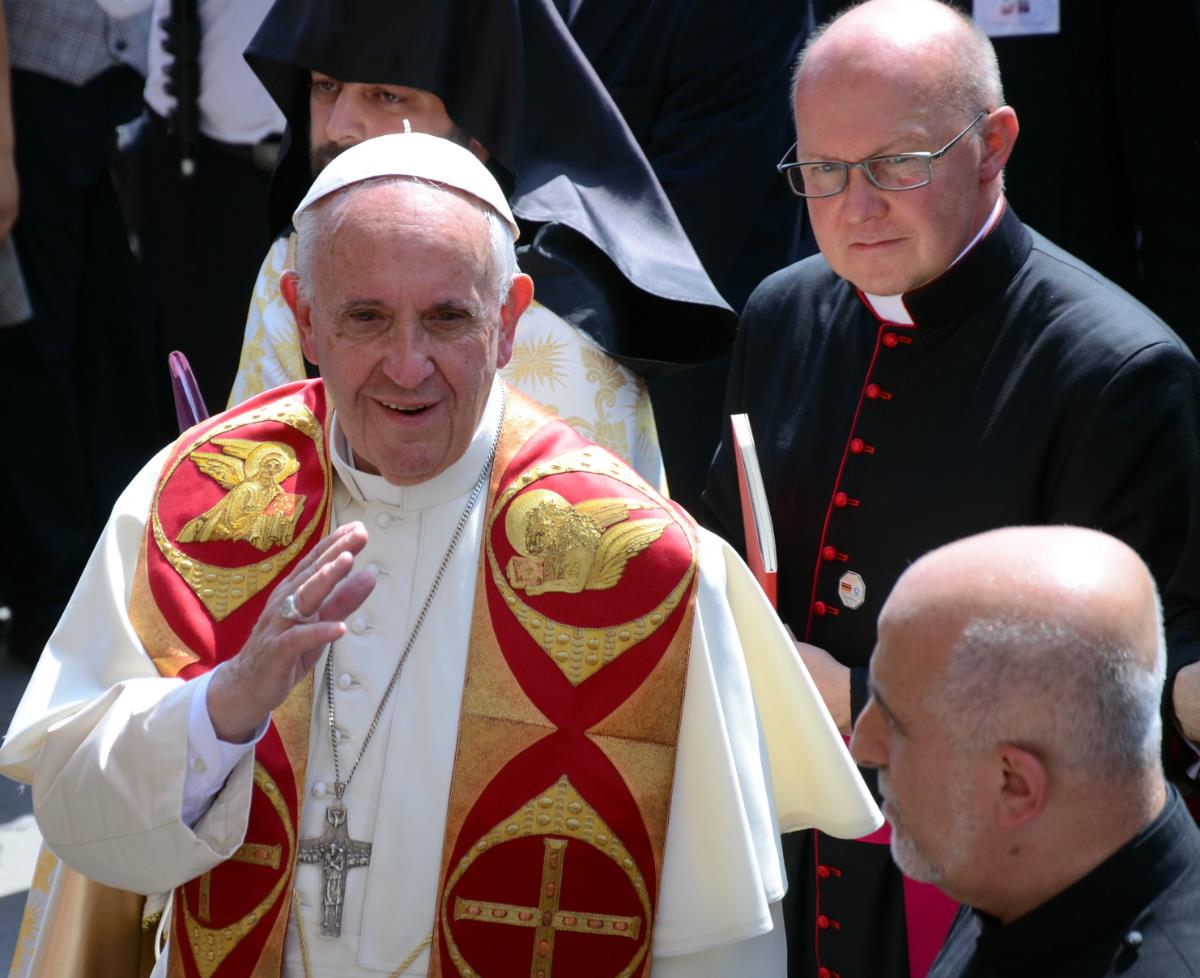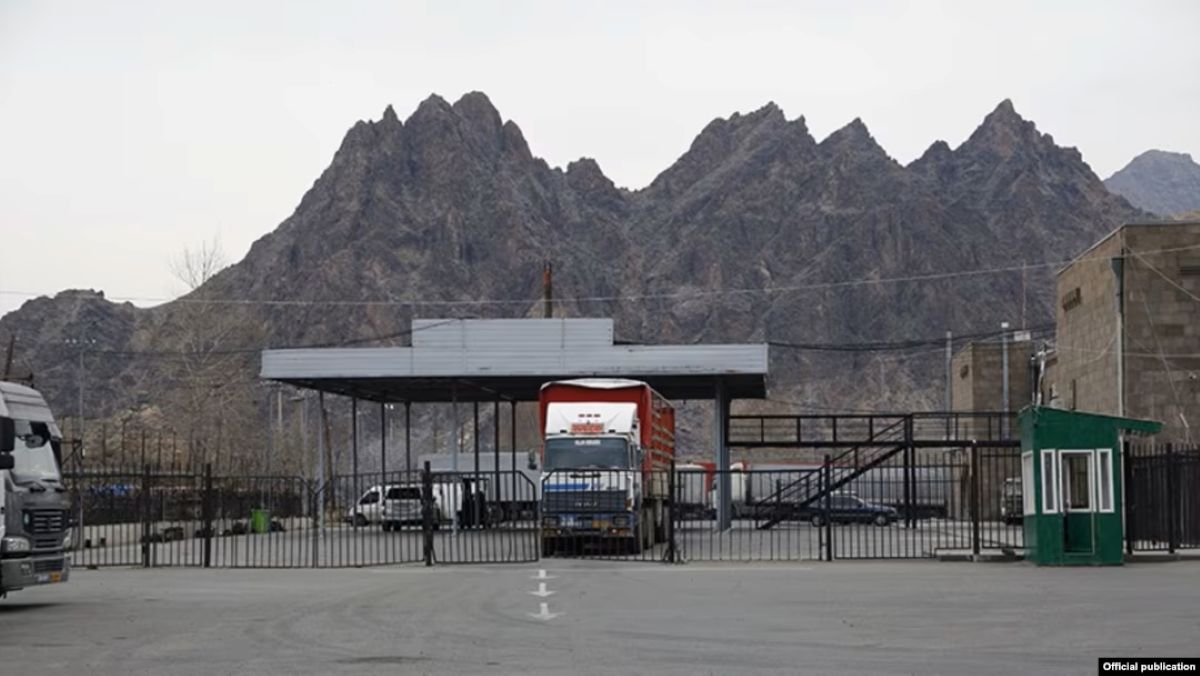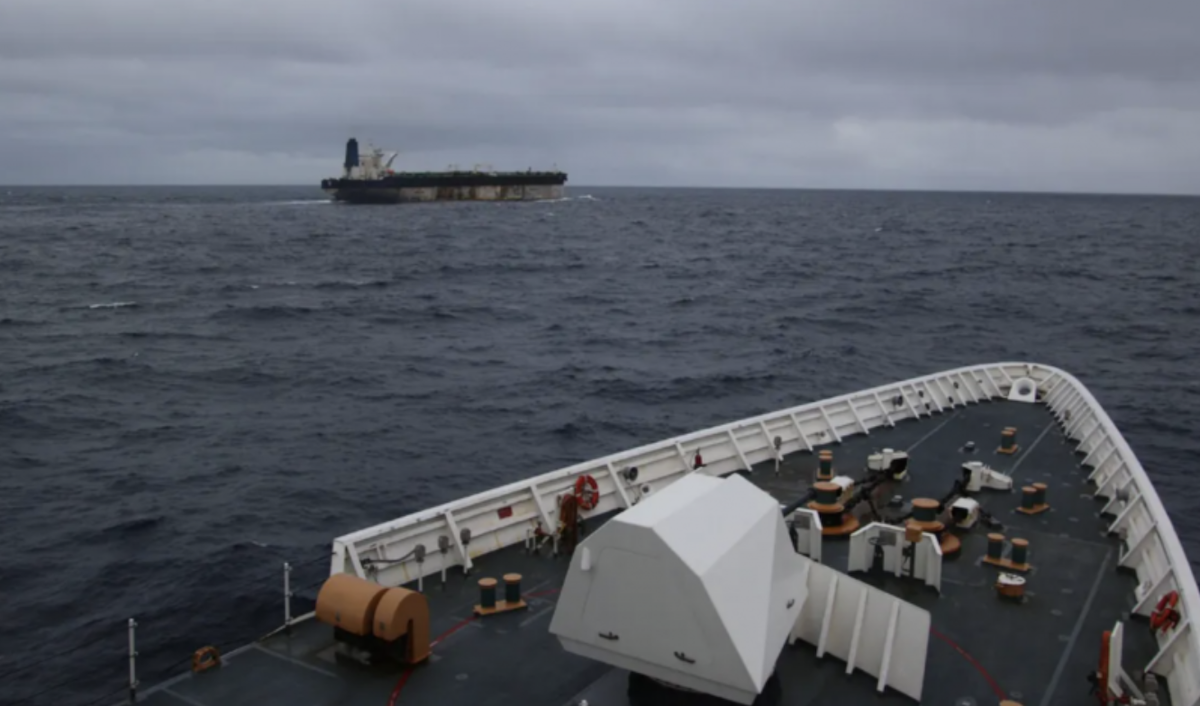The ‘Roman Holiday’ is over
The Pope’s visit almost coincided, or, to be more precise, came right after the Karabakh talks in St. Petersburg. And if the time of the visit had not been scheduled and announced long before that, one might have thought that the Armenian authorities had purposefully distracted the public’s attention away from the most critical and long-standing problems, as well as from ones that have only recently surfaced.
Francis was a breath of fresh air, inspiring calmness and serenity just by his presence. And that’s not just meant as compliment. It could be seen on the faces of those who had the chance to see and listen to him.
To put a well-known phrase a little differently, it could be siad: the Pope came, he was seen, he conquered. Since he did not have any personal goals, and he prayed solely for peace, for mankind’s “ability to always discern the difference between good and evil’, the ‘benefit’ of which would be universal.
The Pontiff uttered words which served as ‘ointment for the hearts of the Armenian population’, and for a second time caused the indignation within the Turkish authorities. During his address in the presidential residence, he again termed the events which occurred in Ottoman Turkey in 1915 as genocide, though the word ‘tragedy’ had been written in his prepared speech.
“Here I pray with pain in my heart; I pray that there will never again be tragedies like this. May God protect the memory of the Armenian people. Their memory should never become less significant or be forgotten. Their memory is a source of peace for a better future, reads the note that Pope Francis I left on the following day in the guest book of the memorial of the genocide victims.
 Blognews.am
Blognews.amThe Pope surprised the wider public, since he was travelling in a cheap, unarmored car, not allowing his guard to ward off the faithful who wished to shake hands with him.
Therefore, no one was surprised when before leaving the Republic Square after the common prayer for peace http://jam-news.net/Publication/Get/ru-RU/1828, he came up to disabled people, hugging and kissing them all.
Some reports have leaked in the press, saying that the Pope allegedly did not want to be welcomed by Armenian businessmen upon his arrival, that he refused to stay in the hotel suite intended for him and wished to spend a night in a nursing home for the elderly.
These were lessons from Pope-‘he who has ears to hear, let him hear’. It’s so pleasant to list all of these lessons that it is hard to go back to reality without him, where there are still no answers for the problems that have piled up.
Only some Armenian media syndicates forget to cover these problems, and in spite of the Pope’s visit, still cast a light on the long-standing problems that the country would have to continue to face. A resolution in Karabakh, i.e. the peace that Pope Francis has prayed for, is considered to be the most important problem the country faces.

The outcome of the meeting between Putin, Sargsyan and Aliyev in St. Petersburg has been analyzed and the statement by the Head of Azerbaijani President’s Administration, Novruz Mammadov, that during the St. Petersburg summit the those gathered had reached an agreement on a gradual resolution of the problems in Karabakh, which was later flatly denied by the Russian Foreign Ministry’s Spokesperson, Maria Zakharova, were also mentioned.
The main conclusion here is that the Armenian authorities have been holding something back, not showing the whole picture of the talks to their populace. As a result, Armenian media syndicates have been analyzing with whatever means they posses the information available and the details that have been leaked in press, given them credibility.
Russia’s attempt to take the resolution initiative into its own hands and reduce the role of the OSCE Minsk Group in dealing with the Karabkh conflict settlement, has been most discussed in Armenia. These statements have been made not only by political scientists and analysts, but also by credible intellectuals.
Hranush Kharatyan, an ethnographer: “The Minsk Group is in a hurry to counteract Russia’s initiatives, although France, according to its Ambassador to Armenia, said it was ready to host the next meeting in the near future. However, it is unclear what kind of meeting will it be – a trilateral one between France, Armenia and Azerbaijan or one in the Minsk Group format, but in France?
The presence of the Minsk Group somewhat reduces the chance of drastic changes taking place, at least as long as two out of three participant states are competing with each other. It’s true that the international mechanisms for investigating the incidents on the contact line have been rejected by Azerbaijan, and this happened because of Russia’s active support. On the other hand, the U.S. official from the Minsk Group does not miss an opportunity to state the necessity for the return of the districts [the mountain areas of Nagorno-Karabakh], and here Russia is mysteriously silent. This ‘mutual control’ somewhat balances the situation.
Armenian-Russian relations were also discussed. Armenia no longer perceives Russia as a friend. “The point is that Moscow is no longer a de facto ally to Armenia, but it continues to maintain an “allied relationship” in documents, and it’s commitments still must be fulfilled. Moscow has reached the point where its de facto non-allied and de jure allied relations are inconsistent with each other, reads an article by Hakob Badalyan, Lragir.am columnist.
In response to the Azerbaijani President’s statement, in which it was pointed out that ‘the issue should be resolved aligned with the territorial integrity of Azerbaijan’, that ‘Nagorno-Karabakh will never gain independence’, ‘Nagorno-Karabakh’s status is a matter to be decided in the future,’ Vahram Martirosyan, a writer and publicist, wrote: “What are these negotiations about if Aliyev accepts only a stage-by-stage alternative [of resolution], and at the same time wants to want after several stages have been completed before thinking about what to do, we have to do something else instead.
Meanwhile, the OSCE Minsk Group Co-Chair from the USA, James Warlick, discussed a possible compromise between both sides on the controversial issues, as well as come closer to the resolution of the conflict. However, the U.S. diplomat did not express his optimism.
Following this, the mass media published the Co-chairs’ joint statement, calling on Azerbaijan and Armenia “to remove all remaining obstacles by increasing the scope of the mission of the Personal Representative of the OSCE Chairperson-in-Office [Ambassador Andrzej Kasprzyk], as well as “urging progress in substantive talks and a proposal to establish an OSCE investigative mechanism [to probe into the incidents on the contact line].
The Armenian press review is complemented by the bewilderment and discontent of many analysts concerning the government’s actions. Haikazn Gagriyan, editor-in-chief of the media outlet, Lragir.am, wrote:
“The following situation can be observed: it has become problematic for Azerbaijan to resort to military action, since Russia has hinted that Azerbaijan should expect a catastrophe if war broke out. The OSCE insists on the introduction of mechanisms [for an investigation into violations on the contact line] and furthermore, on maintaining the status quo. What Armenian leadership has to do in this situation is to pursue a consistent and independent policy…
Published: 27.06.2016



















